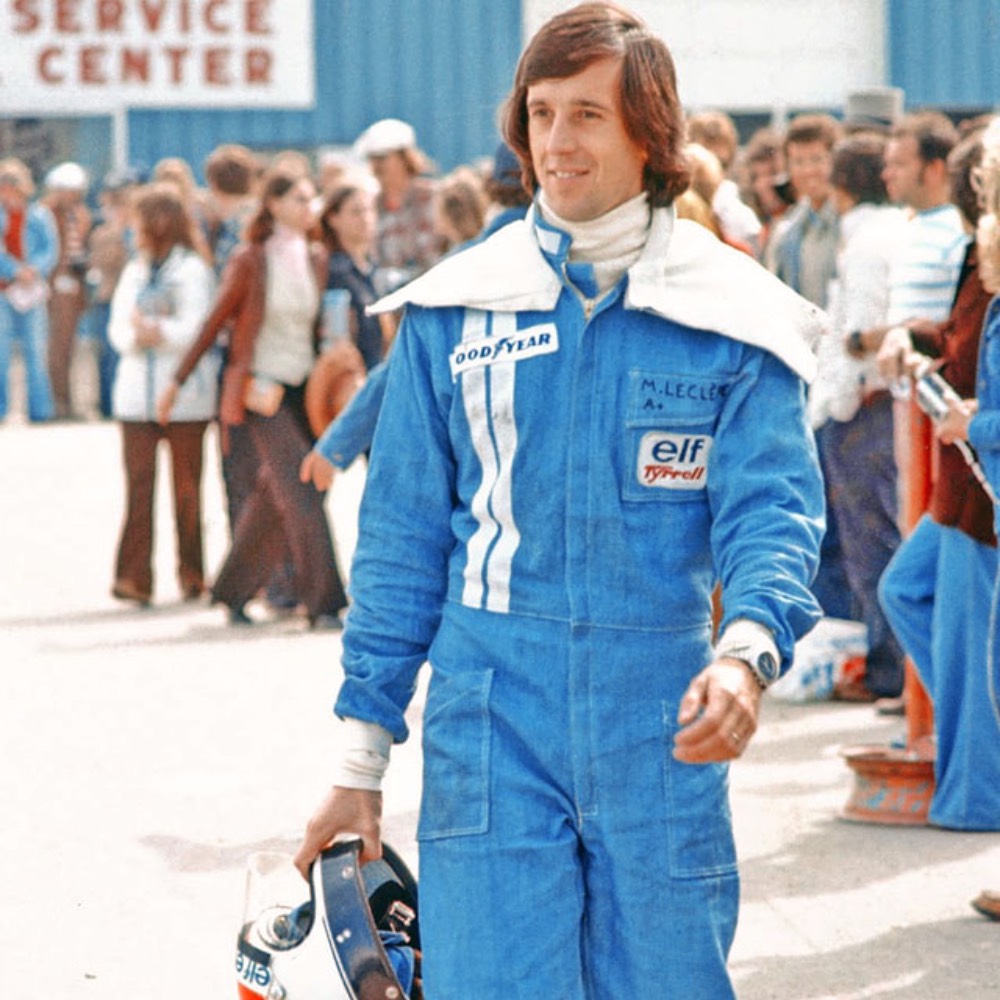
Michel Leclère
Career Statistics
Biography
Michel Leclère (18 March 1946 - Present): French racing driver from Mantes-la-Jolie who participated in eight Formula One World Championship Grands Prix in 1975 and 1976 with Tyrrell and Wolf-Williams, achieving a best result of tenth at the 1976 Spanish Grand Prix and scoring no championship points. Leclère won the 1971 French Formula Renault championship and the 1972 French Formula 3 championship, and finished runner-up in the 1975 European Formula Two championship with three race victories. Born in Mantes-la-Jolie in the Yvelines department west of Paris, Leclère began racing in the late 1960s in French national categories. His breakthrough came in 1971 when he won the French Formula Renault championship, establishing himself as one of France's promising young drivers.
The Formule Renault series used identical Renault-powered cars, meaning success depended purely on driver talent rather than equipment advantages. In 1972, Leclère won the French Formula 3 championship, confirming his ascending trajectory through the junior formulae. The F3 title earned him opportunities in Formula Two, where he would spend several years honing his craft. From 1972 through 1975, Leclère raced in European Formula Two, gradually improving his results.
The 1975 F2 season was his breakthrough—Leclère won three races and finished runner-up in the championship, beaten only to the title by Jacques Laffite. The runner-up finish, achieved in the final year of the European F2 Championship before it was replaced by Formula 3000, demonstrated Leclère possessed the speed to compete at higher levels. His Formula Two success earned Leclère a Formula One opportunity. Tyrrell team principal Ken Tyrrell, known for developing French talent, signed Leclère to make his debut at the 1975 United States Grand Prix at Watkins Glen on 5 October.
Driving a Tyrrell 007-Ford, Leclère qualified near the back and retired with mechanical failure, an inauspicious Formula One debut. For 1976, Leclère secured a full-season drive with Wolf-Williams Racing, partnered with former Formula One World Champion Jacky Ickx. However, the Wolf-Williams FW05 was hopelessly uncompetitive—an outdated design with poor aerodynamics and insufficient development. Neither Leclère nor the experienced Ickx could extract competitive performances.
At the 1976 Spanish Grand Prix at Jarama, Leclère finished tenth, his best Formula One result, though well outside the points which only extended to sixth place. Over the 1976 season, Leclère sometimes qualified faster than Ickx, particularly at Monaco and Zolder, demonstrating he was not outclassed by his legendary teammate. However, the car's fundamental lack of competitiveness meant neither driver could score points. At the 1976 French Grand Prix at Paul Ricard, Leclère's home race, he failed to qualify—a humiliating result before French fans.
It would be his final Formula One race. Eight entries, eight starts, zero finishes in the points, zero championship points—statistics that reflect uncompetitive machinery rather than lack of talent. Following his 1976 Formula One disappointment, Leclère returned to Formula Two, which had been replaced by Formula 3000 for 1985. He continued racing in F2 through 1979, achieving occasional strong finishes but never regaining the form that made him 1975 runner-up.
Leclère retired at the end of the 1979 season after failing to secure a return to Formula One, recognizing that his opportunities had passed. After retiring from racing, Leclère remained involved in motorsport through historic racing. In recent years, he has been associated with the Renault H&C Classic Team, demonstrating and racing historic Formula One cars and other machinery at various events around Europe. His participation in historic racing has introduced his name to new generations of motorsport fans who appreciate drivers from Formula One's 1970s era.
Known for his 1971 Formula Renault and 1972 French F3 championships, runner-up finish in the 1975 European F2 championship with three victories, occasionally outqualifying Jacky Ickx at Wolf-Williams despite uncompetitive equipment, and involvement with historic Formula One car demonstrations, Michel Leclère represents the talented French drivers of the 1970s whose Formula One careers were constrained by inadequate machinery. His junior formula success demonstrated genuine ability, but Wolf-Williams' lack of competitiveness prevented him from showing his talents at Formula One's highest level.